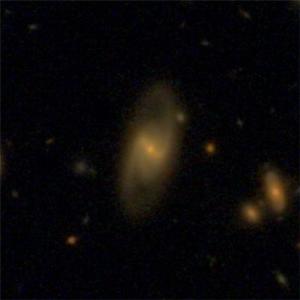Oct 31 2014
Astronomers have long sought to understand exactly how the universe evolved from its earliest history to the cosmos we see around us in the present day. In particular, the way that galaxies form and develop is still a matter for debate.
Now a group of researchers have used the collective efforts of the hundreds of thousands of people that volunteer for the Galaxy Zoo project to shed some light on this problem. They find that galaxies may have settled into their current form some two billion years earlier than previously thought.
 A Hubble Space Telescope image of a spiral galaxy seen when the Universe was less than a third of its current age, yet showing the same barred feature as much older, settled disk galaxies. Credit: NASA, ESA, J. Kartaltepe (NOAO), C. Lintott (Oxford), H. Ferguson (STScI), S. Faber (UCO)
A Hubble Space Telescope image of a spiral galaxy seen when the Universe was less than a third of its current age, yet showing the same barred feature as much older, settled disk galaxies. Credit: NASA, ESA, J. Kartaltepe (NOAO), C. Lintott (Oxford), H. Ferguson (STScI), S. Faber (UCO)
Dr Brooke Simmons of the University of Oxford and her collaborators describe the work in a paper in Monthly Notices of the Royal Astronomical Society. The team set Zoo volunteers the task of classifying the shapes of tens of thousands of galaxies observed by the Hubble Space Telescope. These objects are typically very distant, so we see them as they appeared more than 10 billion years ago, when the universe was about 3 billion years old, less than a quarter of its present age.
The newly classified galaxies are striking in that they look a lot like those in today’s universe, with disks, bars and spiral arms. But theorists predict that these should have taken another 2 billion years to begin to form, so things seem to have been settling down a lot earlier than expected.
Brooke comments: “When we started looking for these galaxies, we didn't really know what we'd find. We had predictions from galaxy simulations that we shouldn't find any of the barred features that we see in nearby, evolved galaxies, because very young galaxies might be too agitated for them to form.”
‘But we now know that isn't the case. With the public helping us search through many thousands of images of distant galaxies, we discovered that some galaxies settle very early on in the Universe."